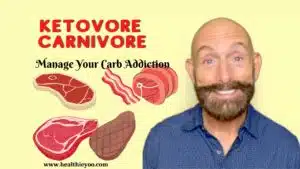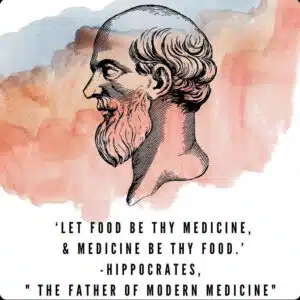Most of us have our own personal areas of “stuckness”. As you hear more and more about health coaching, you may be wondering if you need a health coach or a therapist. Health coaching is an emerging and evolving field, and there are some important distinctions between coaching and therapy. This article offers an overview of the similarities and differences between the two professions (coaching vs therapy) to help you make the best decision for your needs and circumstances. Also, know about NBHWC certification.
Health Coach or Therapist – The Similarities
First, the similarities.
- A health coach and a therapist will both approach you with empathy, compassion, and kindness.
- Both are working in partnership with you to help you make the changes in your life that are important to you.
- Both a therapist and a health coach will create a safe and non-judgmental space for you to open up, discuss personal challenges, and explore the emotions that come up for you.
- Both are invested in helping you develop new insights and overcome obstacles.
- Both may challenge your limiting beliefs and help you develop new ways of seeing the issues.
- Both may work with you on techniques to manage tension, such as relaxation or meditation.
- Both have their foundations in evidence-based techniques (meaning their effectiveness has been borne out in the scientific literature).
Health Coach or Therapist – The Differences
Now, the differences.
- A therapist generally has a minimum of a master’s degree (usually 2 years of post-college education) and perhaps a doctorate (usually 4-6 years post-college). A health coach, on the other hand, technically needs no formal education! Coaching is an unregulated industry, which means that anyone can hang out a shingle and call themselves a coach (e.g., health, life, joyfulness, jump roping). While some of them may be quite good, as a consumer, your best bet to protect yourself is to look for a health coach with the credential from the National Board for Health and Wellness Coaching (NBHWC). This organization (NBHWC) works in partnership with the National Board of Medical Examiners, which develops and oversees education and credentialing programs for physicians. Those with the NBCHWC credential have demonstrated a minimum level of coaching competency via an oral exam; have passed a written exam overseen by the NBME and administered in a staffed testing center; and have committed to adhering to the NBHWC’s Scope of Practice Guidelines and Code of Ethics. Continuing education is required. Another organization, other than NBHWC, while not focused specifically on health, is the International Coaching Federation, which also has rigorous credentialing standards.
- A therapist, while expressing empathy and support, is more likely to act as the expert in the relationship. Health coaching, however, is a partnership. A coach assumes that you already have all the resources and strengths you need to get to where you want to be. A coach enters the relationship believing that you are the expert in you, and will guide you toward your own solutions. Health coaches do this by asking you powerful questions, helping you see blind spots and overcome obstacles, and exploring your own unique strengths and values. You’ll learn to apply these strengths in situations you may not have thought about before.
- Whereas a therapist might sometimes tell you what to do, coaches generally do not do this. “Coaches evoke and inquire; therapists also intervene….(therapists)… may be quicker to provide the client with information or interventions at the moment, since they are socially conditioned and educated to be expert resources and provide essential knowledge, as in working with trauma, sexual abuse, personality disorders, and attention deficit disorder/ attention deficit hyperactivity disorder.” (2)
- A therapist’s work with you may be more open-ended than coaching. Health coaching is more action-oriented and solution-focused, and while some people choose to remain in coaching for years (often for the support and accountability), it’s usually a goal-oriented process where you have something, in particular, you want to attain, and you work toward it with an expectation that it’s time-constrained. Coaches may check in with clients between sessions as a regular part of the process, whereas a therapist generally only has contact with the client when there is a crisis (2).
- Therapy may focus on the past, present, and future, and often the focus is on healing past hurts to help you get back to a baseline level of functioning. A health coach spends much less time focusing on the past. While it may inform the current work, coaching is about looking forward to the present day. Whom do you want to be down the road? The health coaching focus is on helping you get there. If you feel that the only path forward is by healing first, you probably need a therapist.
- A coach does not make diagnoses, do formal psychological testing, or prescribe anything (including diet or exercise!). A coach does not spend time exploring the causes of your discomfort, since the work is present and future-focused. A coach is not appropriate for you if you have severe psychological issues such as a restrictive eating disorder, suicidal or homicidal ideation, or current difficulties resulting from past trauma. Health coaching is more appropriate for someone who wants to focus on self-improvement, a higher sense of purpose, or general wellness.
- Professional coaches typically are not medical professionals (although they can be). Coaching supports people in increasing their self-awareness, self-exploration, and self-advancement (1), and this support can be very beneficial in different areas including health and wellness, personal relationships, and the work environment. “What well-trained coaches do extraordinarily well, that most psychologists (even health psychologists) are not trained to do, is invite the client to imagine a better situation through a visualization exercise. Coaches do not tell them what to do, but rather elicit from the client what the clients believe they should do based on their desired outcomes.” (3)
- “The psychologist takes cues from the client to assess what is wrong–what skill is missing, what behavior is off, or what habitual thought or perception is causing problems. Then, psychologists work to help the client obtain that missing skill, correct the behavior, think differently, or adjust the perception. Coaches, on the other hand, don’t have pre-determined jobs. They go where the client wants to go – whether the coach would make the same choice as the client is irrelevant because the coach holds a mindset of curiosity and encouragement without directing what is next. Coaches are experts in a particular process of change, in how to facilitate – not direct or lead – the client through identification of the goals they want to achieve, followed by a series of small steps as experiments to figure out the best way to achieve them. It may seem a really subtle distinction; however, it has huge implications for practice.” (3)
Coaching vs Therapy: Is there a gray area?
Absolutely!
Coaching and therapy professionals have begun to explore the differences. “As more psychotherapists add coaching skills to their practice and more health coaches work with complex medical patients wrestling with stress-related illness, the two disciplines bump up against each other, oftentimes with salvos of accusations that coaches wrongly encroach upon psychotherapy or that therapists call themselves coaches without specific coach training.
At the same time, a growing paradox exists that while the two fields can be rife with contention, they also move along a continuum of results-oriented, psychological skills for facilitating goal attainment while improving the mental and physical health of their clients.” (2).
Sometimes you can have a therapist and still be an appropriate candidate for coaching. Having a diagnosis does not preclude you from working well with a coach, particularly if you have action-oriented goals as part of your treatment. If you have a history of trauma, for example, but you’ve dealt with it and get through your days comfortably, and you would like to focus on exploring your sense of purpose, finding more joy and play in your life, or getting healthier physically, coaching may be appropriate for you. A deciding factor might just be your level of functioning.
If you’re getting up each day ready to face the day, completing your work on time, and generally relating well to colleagues and family, but have an area of your life or two where you feel stuck, frustrated, defeated, or overwhelmed, you may appreciate the work of coaching. If you are struggling to get through the day, calling in sick or missing work, disengaging, crying, not sleeping at all, etc., you probably need a therapist, at least to start. This article (2) provides a broader range of concerns more appropriate for therapy.
If your focus is on any of the things below, you may be well-suited to work with a coach.
- to build better stress management skills
- to feel more connected socially
- to feel more resilient and less burned out
- to figure out a better work-life balance
- to learn to meditate/relax
- to live a lifestyle that promotes good physical and mental health
- to learn to manage your emotions better to be a better listener/employee/partner/friend
- to prevent or manage a chronic disease like diabetes, autoimmunity, or heart disease
- to learn to set better boundaries
- to feel less addicted to your phone and social media
- to learn better sleep habits
- to feel more purposeful/fulfilled
- to work from a standpoint of your values and strengths
- to play more
- to set aside more time for yourself and self-care
- to grow
Most coaches and some therapists offer a brief complimentary consultation; thus, it is a risk-free chance to consider what is the best fit for you. If it seems that you need more support than what health coaching can offer, a coach can help you find a mental health professional.
Sources
- https://www.forbes.com/sites/forbescoachescouncil/2023/02/15/coaching-as-a-part-of-therapeutical-solutions/?sh=6ba5d1f11e4a
- https://www.ncbi.nlm.nih.gov/pmc/articles/PMC3833547/
- https://societyforhealthpsychology.org/articles/what-is-health-and-wellness-coaching-how-does-it-compare-to-health-psychology/

Janet Frank
Related Posts



Renal Dietitian Answers Real Questions Of Dialysis Patients




